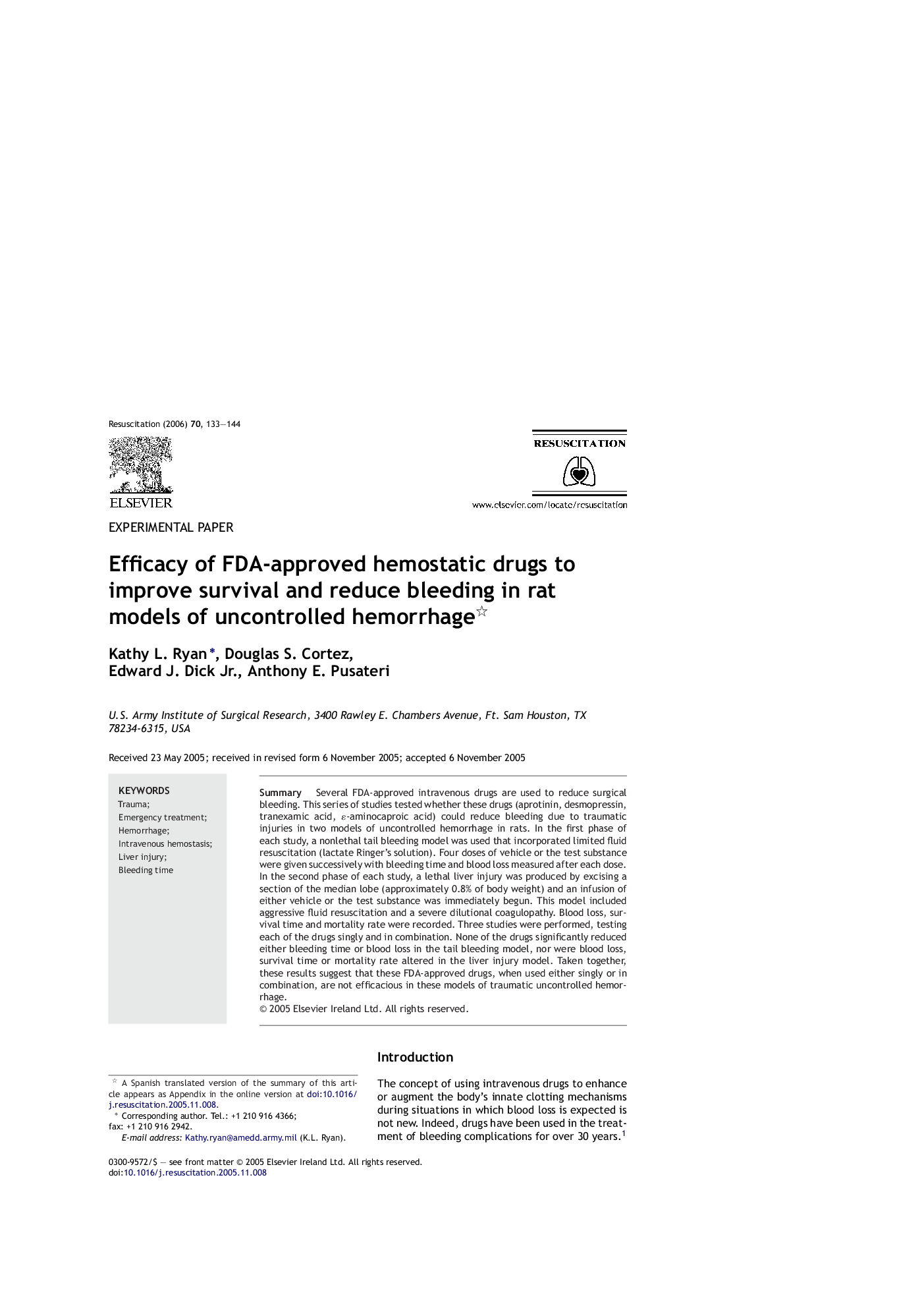| Article ID | Journal | Published Year | Pages | File Type |
|---|---|---|---|---|
| 3011281 | Resuscitation | 2006 | 12 Pages |
SummarySeveral FDA-approved intravenous drugs are used to reduce surgical bleeding. This series of studies tested whether these drugs (aprotinin, desmopressin, tranexamic acid, ɛ-aminocaproic acid) could reduce bleeding due to traumatic injuries in two models of uncontrolled hemorrhage in rats. In the first phase of each study, a nonlethal tail bleeding model was used that incorporated limited fluid resuscitation (lactate Ringer's solution). Four doses of vehicle or the test substance were given successively with bleeding time and blood loss measured after each dose. In the second phase of each study, a lethal liver injury was produced by excising a section of the median lobe (approximately 0.8% of body weight) and an infusion of either vehicle or the test substance was immediately begun. This model included aggressive fluid resuscitation and a severe dilutional coagulopathy. Blood loss, survival time and mortality rate were recorded. Three studies were performed, testing each of the drugs singly and in combination. None of the drugs significantly reduced either bleeding time or blood loss in the tail bleeding model, nor were blood loss, survival time or mortality rate altered in the liver injury model. Taken together, these results suggest that these FDA-approved drugs, when used either singly or in combination, are not efficacious in these models of traumatic uncontrolled hemorrhage.
